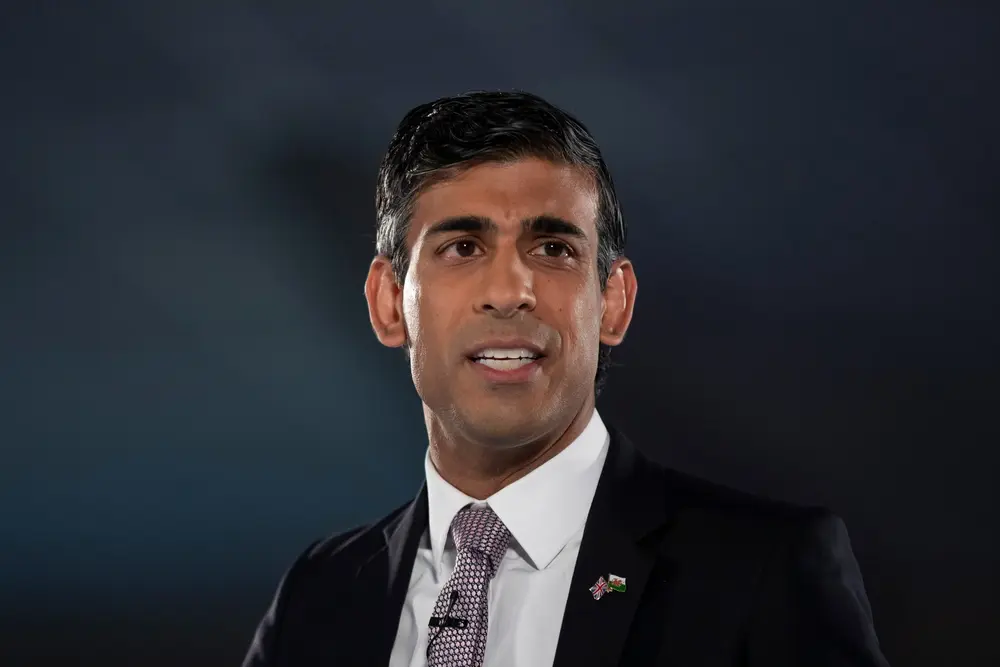
London and Brussels negotiators are engaging in the latest round of talks on the Northern Ireland Protocol. The treaty, as part of the EU-UK Withdrawal Agreement, was ratified in January 2020. More than three years later, a deal remains far from reach and pro-UK politicians in Britain and Northern Ireland grow increasingly fearful of the break up of the United Kingdom.
Multiple reports from last summer suggested that Boris Johnson’s government was on the brink of abandoning elements of the Protocol, or of tearing the treaty up altogether. Brussels sources responded that any such action would quickly result in an all-out trade war.
Relations between the two governing authorities have, since that time, become much closer.
EU Commission Vice President Maroš Šefčovič himself expressed his desire that talks with UK Foreign Minister James Cleverly should continue in a “constructive, collaborative spirit.”
Here's the 🇪🇺🇬🇧 joint statement after my video call with @JamesCleverly & @chhcalling: https://t.co/Dh7UUFbI3P
— Maroš Šefčovič🇪🇺 (@MarosSefcovic) January 16, 2023
Agreed that our scoping work for potential solutions will continue in a constructive, collaborative spirit, taking careful account of each other's legitimate interests. pic.twitter.com/3Coe3wow8M
British writer and Brexit expert Tim Shipman also highlighted in the latest issue of The Sunday Times the “political goodwill between the two sides,” quoting one Whitehall source who noted that those at the top of the talks “have a very good relationship.” Mr. Shipman went on, however, to quote another government figure who said, so far as progress is concerned: “Nothing is going on.” One more added: “Everyone seems to think we are going to come out next week and say: ‘Ta-dah! Here’s a deal!’ And we’re not.”
Resolutions have yet to be found on a number of fronts, including the frequency of checks required for goods moving between Great Britain and Northern Ireland (that is, from one part of the United Kingdom to another), on VAT and, more significantly, on trade dispute arbitration. The job of ruling on such questions currently lands on the desks of the European Court of Justice. Pro-Brexit figures in the UK Parliament would prefer that an independent body took on this important role (some, in fact, are adamant that this should be the case). Brussels is less keen on the idea, or, as Mr. Shipman put it, prefers to “dismiss these objections.”
Improved relations between the UK’s latest group of negotiators and their Brussels counterparts (many of whom have remained in place) have also raised questions over whether the EU suspects it is now more likely to secure a deal, one that suits itself more than Number 10 and Stormont, the parliament buildings in Northern Ireland. Businessman and former MEP Ben Habib told The European Conservative that Prime Minister Rishi Sunak is “no lover” of the union between Great Britain and Northern Ireland. The Tory leader, he added, “fears the EU more than he loves the union.”
Mr. Habib, currently the chairman of Brexit Watch, said that were a deal to be reached, this would likely be “terrible” for the UK and quite the opposite of what those who genuinely supported Brexit were aiming for. But while he admitted “I don’t think we are going to get a deal” at this time, he suggested the EU was simply kicking the “can down the road,” holding off on signing any potential agreements in the hope that the Labour Party will take the reins of government after the next general election and accept closer alignment with the political union.
Responding to this claim, a government spokesperson told The European Conservative:
Our priority is protecting the Belfast (Good Friday) Agreement and preserving political stability in Northern Ireland. It’s our preference to resolve this through talks, with scoping work for potential solutions continuing between the UK and EU. If that isn’t possible, we introduced the Northern Ireland Protocol Bill to fix the practical problems created by the Protocol.
The bill, introduced by Liz Truss back when she was foreign secretary under Boris Johnson, seeks to override parts of the Protocol.
Talks are expected to continue in the coming weeks.
